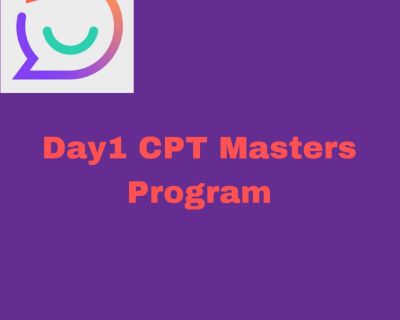Introduction
The International English Language Testing System (IELTS) is a crucial assessment for anyone aspiring to study in an English-speaking environment. With over 10,000 organizations worldwide recognizing it, IELTS is often a stepping stone for students seeking global education opportunities. However, as with many standardized tests, myths and misconceptions abound, often leading to anxiety and misinformation among prospective test-takers. This article aims to dispel some of the most prevalent myths surrounding IELTS, empowering aspirants with the truth and guiding them towards success.
Myth 1: IELTS Is Only for English-Speaking Countries
One common myth is that IELTS is exclusively for countries where English is the primary language. This is far from true. While IELTS is crucial for entry into universities in traditional English-speaking countries like the United States, United Kingdom, Canada, and Australia, it is also widely accepted in many non-English-speaking nations. Countries such as Germany, Netherlands, and Malaysia often require IELTS for courses taught in English.
- Fact: IELTS is globally accepted by educational institutions in over 140 countries.
- Examples: Universities in non-English-speaking countries may require IELTS scores for courses where instruction is delivered in English.
Understanding the global acceptance of IELTS can broaden your study options and help you prepare accordingly.
Myth 2: You Need a Perfect Score to Study Abroad
The belief that only a perfect IELTS score can secure a place at an international university is misleading. Institutions have varied score requirements, which often depend on the specific course or program.
- Fact: Many universities set minimum IELTS band score requirements that prospective students need to meet.
- Holistic Admission: Universities consider multiple aspects of a candidate’s profile, such as academic records, statement of purpose, and extracurricular achievements, alongside IELTS scores.
Instead of aiming for a perfect score, focus on meeting the required band score for your desired institution and program.
Myth 3: British and American English Preference Affects Your Score
There is a misconception that test-takers must use British or American English to score well. However, the IELTS test is designed to be fair and neutral, assessing one’s ability to communicate effectively, not their accent or preferred version of English.
- Fact: IELTS examiners are trained to be impartial and are experienced with a range of accents and dialects.
- Scoring Criteria: Key elements include coherence, grammar, vocabulary, and fluency, rather than the version of English used.
So, candidates can confidently use any English variant they are comfortable with, as long as they maintain clarity and consistency.
Myth 4: You Can’t Prepare for IELTS on Your Own
Self-doubt often creeps in with the notion that self-preparation for IELTS is ineffective. This myth undermines the various robust resources and tools available for self-study.
- Self-Study Resources:
- Online courses and video tutorials
- Practice tests and sample papers
-
Mobile apps like IELTS Prep App for on-the-go studying
-
Effective Strategy Tips:
- Set a regular study schedule.
- Vary your study activities to cover all test components: listening, reading, writing, and speaking.
- Engage with English media to enhance comprehension and fluency.
Self-study can be highly effective if structured properly and supported with the right materials.
Myth 5: You Need to Speak with a British Accent to Ace the Speaking Test
An often-repeated myth is that only a British accent can earn high marks in the speaking section. In reality, IELTS examiners focus on the clarity of communication rather than the accent itself.
- Fact: The speaking test assesses pronunciation, which means clarity of speech and proper intonation are more important than mimicking a particular accent.
- Tips for Enhancement:
- Practice speaking clearly and at a moderate pace.
- Use varied vocabulary and complex sentence structures.
- Record and listen to your speech to self-assess and improve.
It’s not the accent but the effective communication of your ideas that matters.
Myth 6: You Can Only Take IELTS Once a Year
Another myth is the limited availability of IELTS test dates, which can deter prospective test-takers from planning appropriately.
- Fact: IELTS is available multiple times throughout the year, with up to four test dates each month.
- Effective Planning:
- Book your test dates well in advance.
- Leave ample time for preparation between attempts if a retake is anticipated.
Being aware of the frequent availability helps in better scheduling and stress management.
Myth 7: IELTS Is Easier Than Other English Tests
Comparative ease between language proficiency tests is subjective and varies from person to person. It’s important to remember:
- Fact: Each test has unique formats, sections, and scoring criteria.
- Comparison Considerations:
- TOEFL focuses more on American English, whereas IELTS is more international.
- Test preference often depends on individual strengths and institutional requirements.
Selecting a test should align with your strengths and the requirements of your intended study institution.
Myth 8: Your Preparation for IELTS Is Useless After Admission
Once admitted, some believe their efforts in preparing for the IELTS test become irrelevant. However, the skills acquired through IELTS preparation are invaluable.
- Fact: Language proficiency supports academic success and enhances professional opportunities.
- Long-Term Benefits:
- Improved communication skills in academic settings.
- Better job prospects in international markets.
- Enhanced ability to engage in multicultural environments.
Skills from IELTS continue to benefit you long after the test, both academically and professionally.
Conclusion
Dispelling the myths about IELTS is crucial for prospective students to approach the test with an informed and positive mindset. Understanding these realities empowers you to focus on preparing strategically, taking control of your study abroad ambitions.
IELTS is not just a test but a gateway to honing your language skills, which will serve you well in various facets of life. Embrace the journey, keep your goals in sight, and prepare effectively.
Call to Action
Explore our blog for more detailed preparations guides and resources. We invite you to share your experiences and questions in the comments section below. Join the community of learners and benefit from the support and insights available through our platform.








